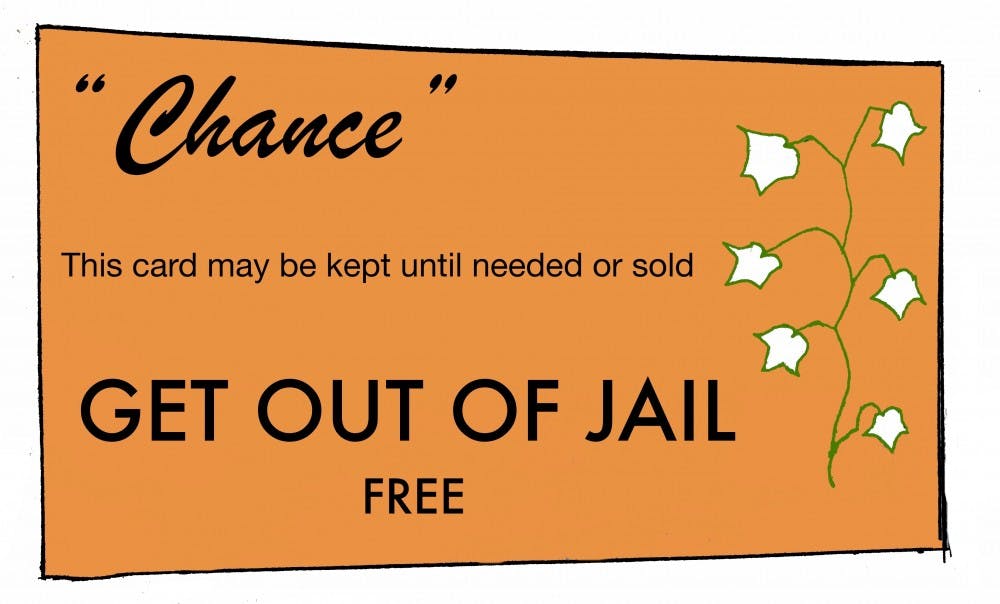Just over a month ago, then-Judge and now-Supreme Court Justice Brett Kavanaugh testified in front of a Senate committee. At one point in his testimony, the Supreme Court nominee was asked yet another question about his drinking habits that he yet again failed to clearly answer. However, although most of his defenses were problematic, including his “choir boy” image and virgin claim, his Yale argument holds major implications for us as students at Princeton, and other Ivy League students. Kavanaugh defended himself by saying the following:
“Senator, I was at the top of my class academically, busted my butt in school. Captain of the varsity basketball team. Got in Yale College. When I got into Yale College, got into Yale Law School. Worked my tail off.”
Acceptance into, along with subsequent graduation from, an Ivy League school does not automatically make someone moral. It certainly doesn’t justify behavior that is immoral. Regardless of Kavanaugh’s guilt or innocence, going to Yale is not a justification. Kavanaugh’s defense plays into a romanticized narrative that conflates hard work and prestigious education with righteous character — a narrative that tends to leave out privilege.
Brett Kavanaugh attended Georgetown Prep, an elite, all-boys Catholic high school, where “what happens at Georgetown Prep, stays at Georgetown prep” — a motto Kavanaugh himself considers a good thing for all of his classmates. For college and law school, he attended Yale University, where he belonged to the fraternity Delta Kappa Epsilon (DKE). During his time there, DKE brothers were described as the “white football frat,” known for being “loud” and “creepy.” The same frat has recently been penalized for shouting and popularizing the phrase “No means yes, yes means anal.” Also during his time at Yale, Kavanaugh was part of an all-male secret society, Truth and Courage, which was centered mostly around drinking. Considering the culture of these highly ranked institutions, Kavanaugh’s schooling, from youth to adulthood, is a weak defense against the allegations of his misconduct.
Kavanaugh’s Ivy League defense is a security blanket, one in which he wraps himself, finding comfort in the superficiality of the title. The defense cushions the fall when people no longer have their own morals to stand on. Sure, Kavanaugh didn’t lie to the committee. He did attend Georgetown Prep and Yale for an education that is impossible to overvalue. But it is also at these places that he has been accused of immoral actions. Clearly, the education he was receiving didn’t affect the man he was becoming.
***
I recently had a conversation with a peer about the ethics of blind grading. I explained why I agreed with the policy because of its efforts to curb bias and discrimination. He, on the other hand, wasn’t sold on the idea because it would nullify his “charm” and the special relationships he tries to form with his preceptors. Besides, he said, things of that nature didn’t happen here. “It’s Princeton.”
He proceeded to ask me if I actually felt discriminated against on this campus. Considering I am an able-bodied white woman, he was looking for answers in the wrong places. Even if it doesn’t happen to me, I know that discrimination does happen on this campus. It is ignorant to think that we are somehow immune to it because of where we go to school or because of some arbitrary prestige or ranking.

When my peer appeared dubious about the idea that students might actually face discrimination on campus, the words “it’s Princeton” repeatedly rung in my ears and left me with a nauseated feeling — not just because of what he said, but because of its implications. The Ivy League defense is dangerous because it breeds a false sense of entitlement, leading us to assume that we don’t have to constantly work on ourselves; being a student at Princeton is enough.
It is within this romanticized narrative of education and character that privilege is brought to light. There is privilege in feeling comfortable writing your name on an exam. There is privilege in being able to “charm” your preceptors. There is privilege in being oblivious, consciously or not, to the injustice around you. But unlike Kavanaugh, we can choose to acknowledge our privilege and its consequences rather than use it as an excuse.
Princeton has given us the opportunity of a lifetime to educate ourselves inside and outside of the classroom with our teams, clubs, and other affiliations. It encourages us to reflect on the world and look within ourselves, challenging the things we deem familiar and digestible. However, for all it has given us, which is so very much, we shouldn’t hide behind Princeton as if it defines who we are.
How we speak to, act toward, and treat everyone around us will define the kind of people we are. And when we slip up, which we will, and run to our defenses, we should do our best to use good moral judgement, which means putting down the glass of water, wiping away the crocodile tears, and calmly taking responsibility for what we have said or done.

Winnie Brandfield-Harvey is a junior Wilson School concentrator from Houston, Texas. She can be reached at wab2@princeton.edu.








